The deep roots of tattooing, penetrating the history of various cultures and civilizations, have always been a subject of interest and study for many. However, there is a category of artists whose connection to this art extends far beyond simple professionalism. In their works, one can trace not only mastery and technical skill but also a profound understanding of cultural traditions and historical contexts.
Among such creators stands out Michael Rasetti - a figure immersed in the world of tattooing to its very depths. His works not only adorn the skin but also intertwine century-old traditions and historical heritage within them.
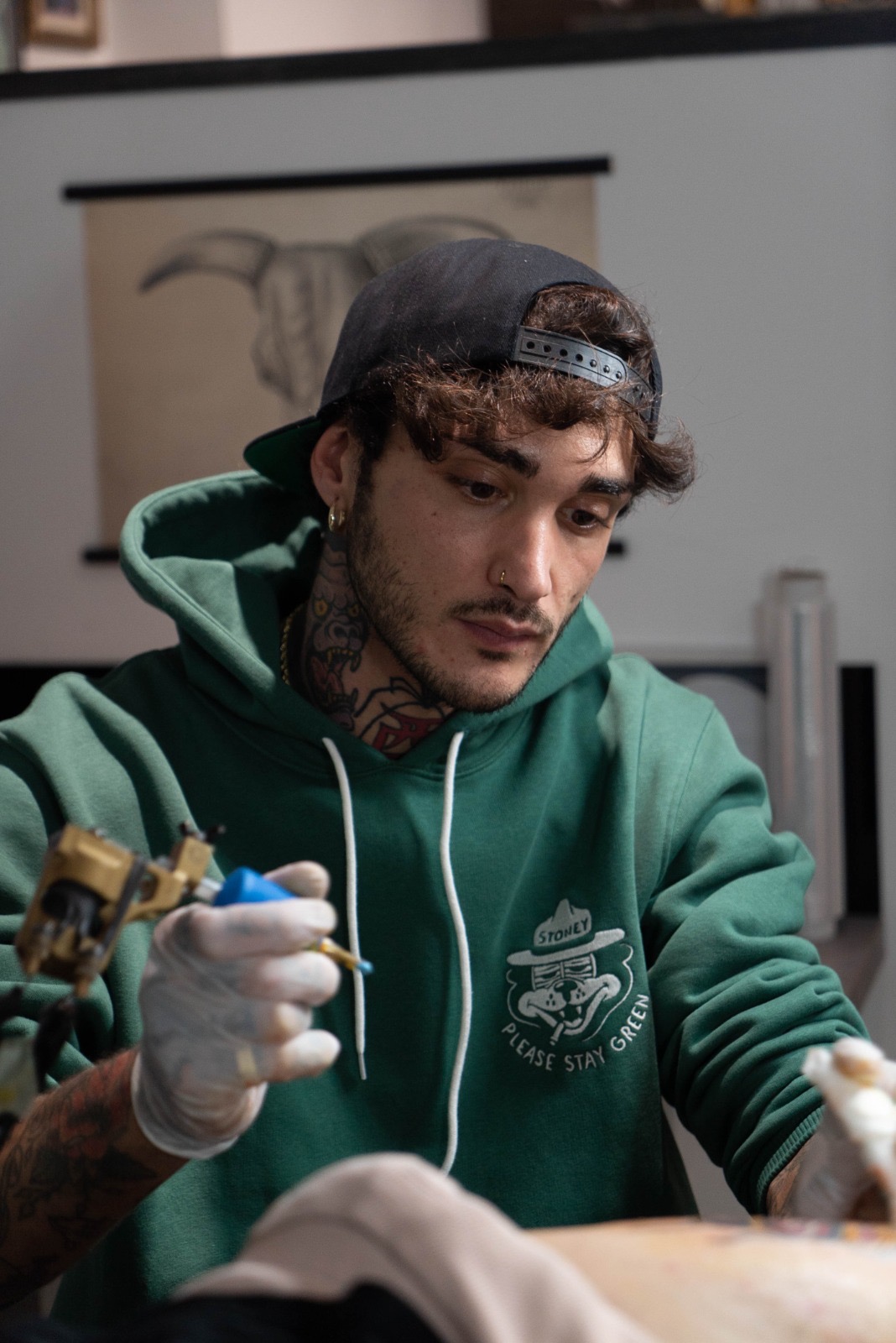
When and why did you decide to become a tattoo artist?
- I stumbled into tattooing quite naturally. Growing up, I admired my dad's traditional flash tattoo of a woman with a sunset on his arm - to me, it was the epitome of cool. Back in school, I found myself doodling designs for classmates without really knowing much about tattooing. Then, one Sunday when I was just 13, my sister took me along with her and my brother to the International Tattoo Expo in Rome. That experience was eye-opening; I was in awe of the artists' skill and the vibrant tattoo culture, that was still a gold period for tattoo conventions. Witnessing people from around the world, speaking different languages and showcasing various styles, left an indelible mark on me.
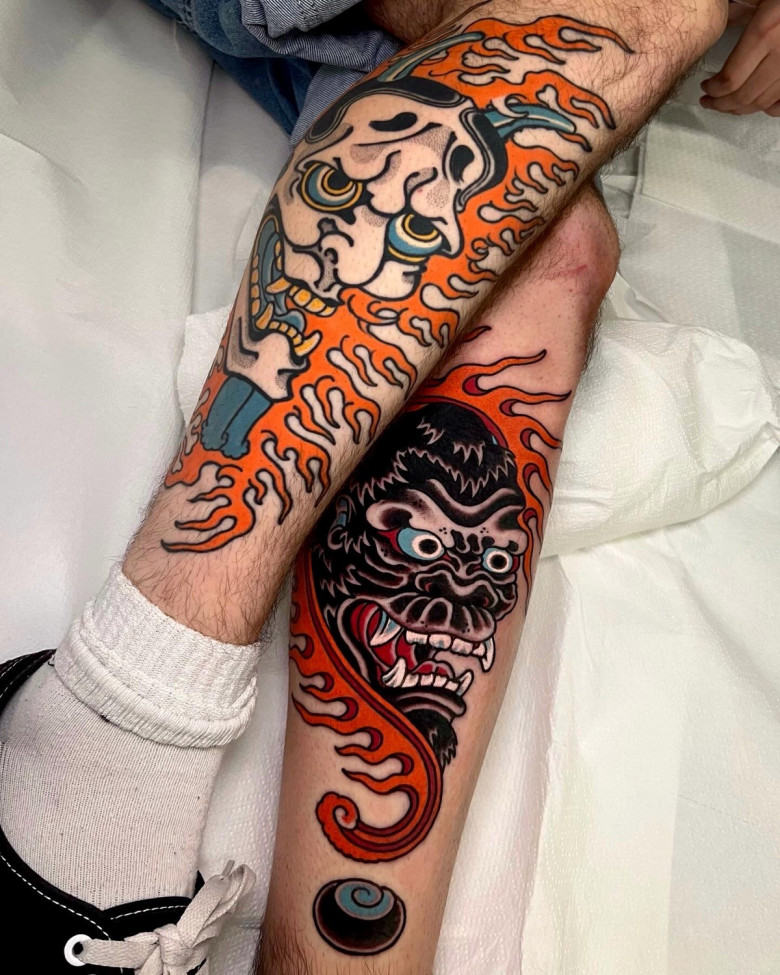
Is tattooing art, a job, or something else for you?
- Absolutely, tattooing started as my passion and sure still is, my plan A, B, C, and even D. It evolved into my profession with its own set of pros and cons, embodying the commitment and responsibility that come with any job. While I remain deeply passionate about tattooing, I find myself increasingly drawn to dedicating more time to drawing and experimenting with painting. Balancing these pursuits with the demands of daily life can be challenging, but it's all part of the journey.
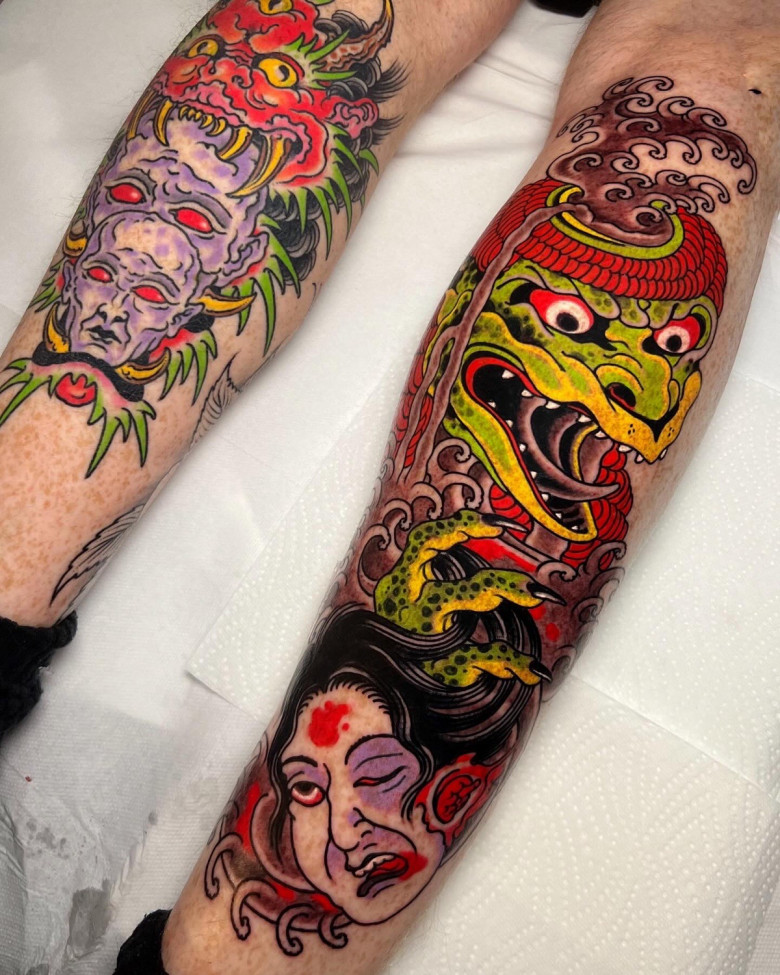
How, when, and what drew you to traditional tattooing?
- I believe that tattooing is a cultural tradition and some tattooers can be recognized as artists, but not necessarily. In my view, it's essential to acknowledge and honor the rich history and traditions that form the foundation of tattooing. While traditional tattooing may not be the only approach, it serves as a crucial starting point that allows artists to grasp the essence and significance of this ancient practice. By studying the works of those who came before us, we contribute to the organic evolution of tattooing, possibly adding our own contributions to this living art form, being part of it.
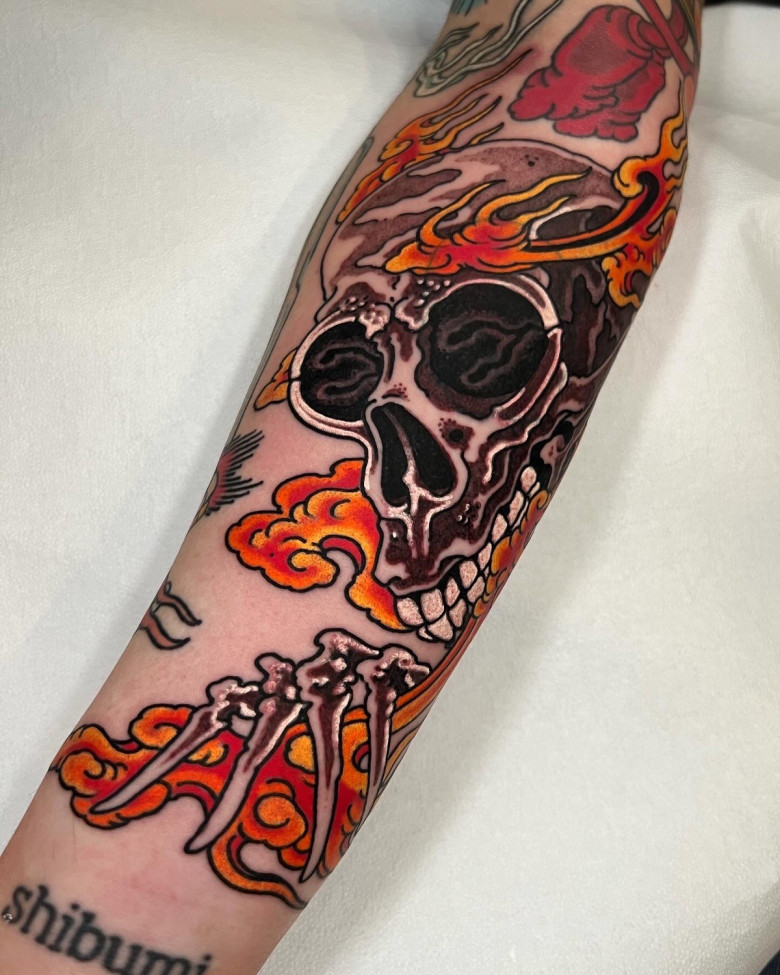
Your vibrant and solid colors in tattoos evoke genuine delight when looking at your portfolio. What themes do you enjoy working with the most?
- Thank you for your kind words! While I don't have specific themes that I favor, I've found myself particularly drawn to the versatility of snakes as a tattoo element. Their symbolism and aesthetic appeal never cease to amaze me. Lately, I've been approaching tattoo projects with a focus on rhythm, colors, and harmony, Rather than being fixated on particular subjects. I personally believe my colors are not special they are just well-contrasted and well-followed by complementary and non others, that's what I think makes them vibrant. It's a period of exploration and study for me, allowing me to delve deeper into different aspects of tattooing.
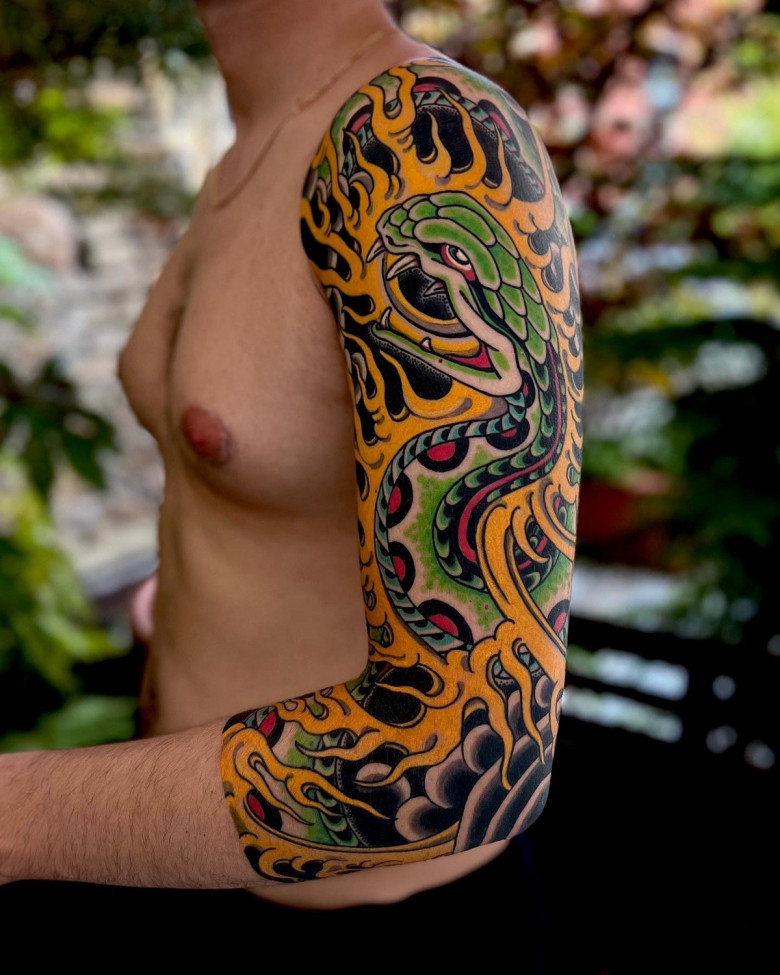
Observing tattooing for many years, it seems that classic traditional tattooing is one of the most resistant to fashion styles. What do you think about this? And why do you think it happens?
- Indeed, traditional tattooing's resilience against changing fashion trends can be attributed to its deep-rooted cultural significance and time-tested techniques. Traditional tattoos are not merely fleeting fashion statements; they are enduring symbols that communicate across generations. The masters of tattooing have left us with a wealth of knowledge and examples, demonstrating the importance of studying and understanding the practice. So what the tattoo culture left behind and didn’t incorporate as his own language are just part of the natural selection hopefully failures helpful for others.
Do you travel a lot for work? Where have you been? Who have you had the opportunity to work with? Can you share a particularly significant experience?
- I absolutely love traveling, as each trip offers unique opportunities for learning and inspiration. Among the many memorable experiences, working and spending time in London with Claudia de Sabe and Yutaro stands out, as well as collaborating with Henning Yorgensen in Denmark and Marco Serio in Amsterdam are 2 of the biggest opportunities for sharing time with incredible tattoo artists, Additionally, working alongside Jano Navarrete and acetates has been incredibly enriching for understanding the Japanese tattoo culture and sharing information.
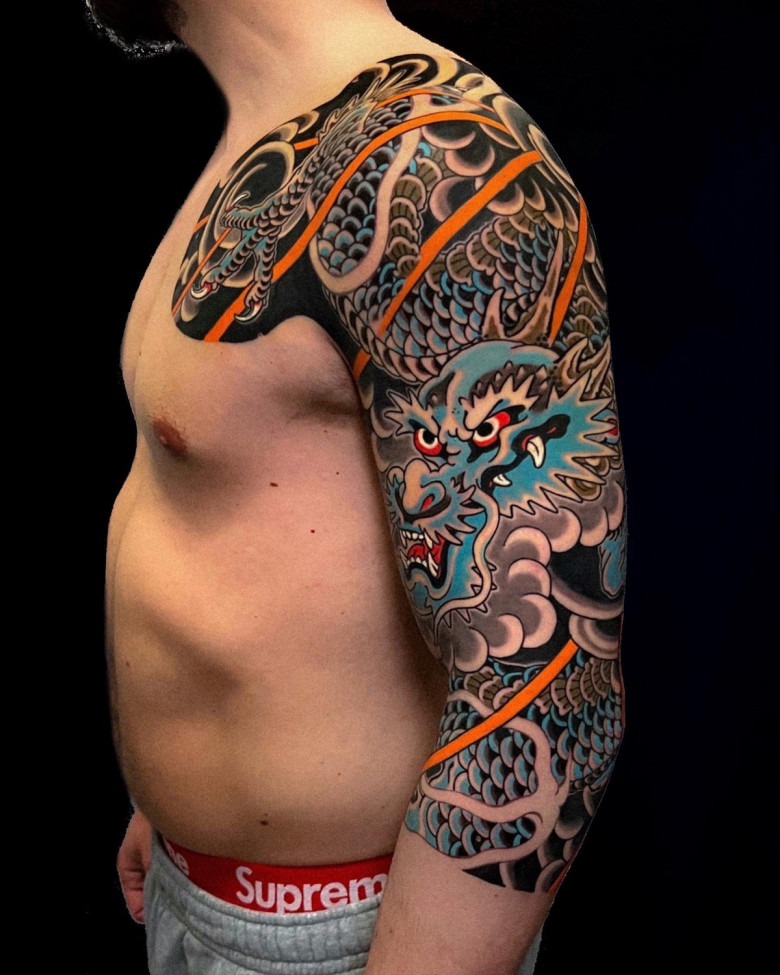
Moreover, spending a month in Australia working with the Lighthouse Fam and the Dynamic Tattoo Crew was a truly remarkable experience. While it's difficult to pinpoint a single significant episode, what stands out for me are the deep conversations about stylistic decisions and cultural references that often occur during our time together, whether it's around a tattoo station, drawing table, or whatever. These moments of sharing insights and ideas have been invaluable to my growth as an artist.
In your opinion, where is traditional tattooing most popular and why?
- In my experience and based on my travels, traditional tattooing appears to be popular in various regions, rather than being concentrated in specific areas. Over the past two decades, traditional tattooing has enjoyed a strong presence and connection across the Western world. Today, it seems that this popularity has spread even further, creating a cohesive global scene for traditional tattooing enthusiasts. What's fascinating is how easily you can recognize the differences influenced by different cultural backgrounds. This diversity offers endless possibilities for interpreting and reproducing the same subject or reference, showcasing the richness of traditional tattooing traditions worldwide.
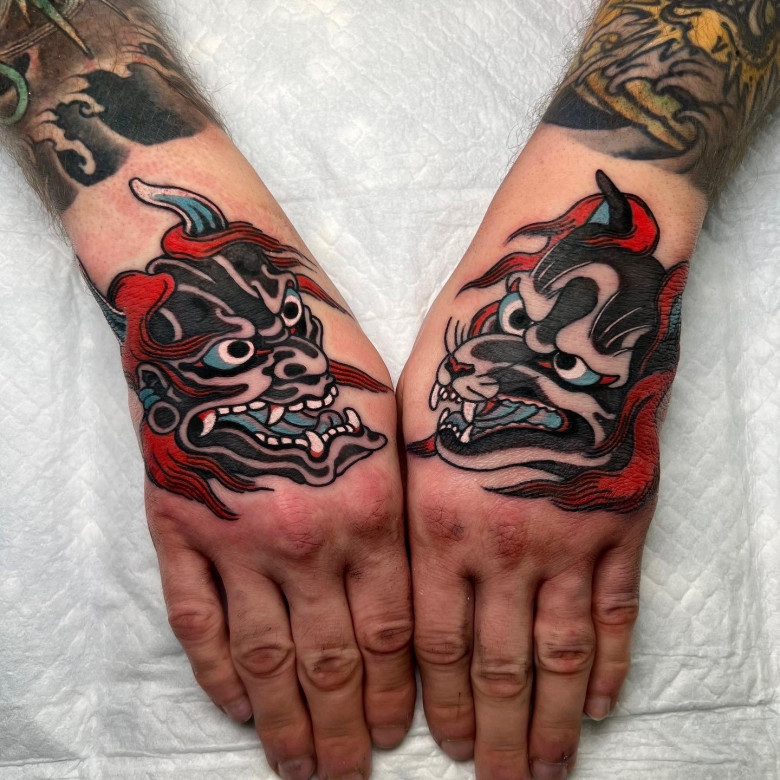
Do you believe in the symbolism of tattoos? What lies behind your designs?
- Given my penchant for experimentation and evolving interests, I don't have a particular favorite tattoo that lasts for long it’s always feel like they are all starting point . However, currently, I find myself fascinated by a back piece inspired by the "nurse mercy" painted by the master Ed Hardy, 1995. Its intricacy and symbolism resonate deeply with me, making it particularly interesting at the moment.
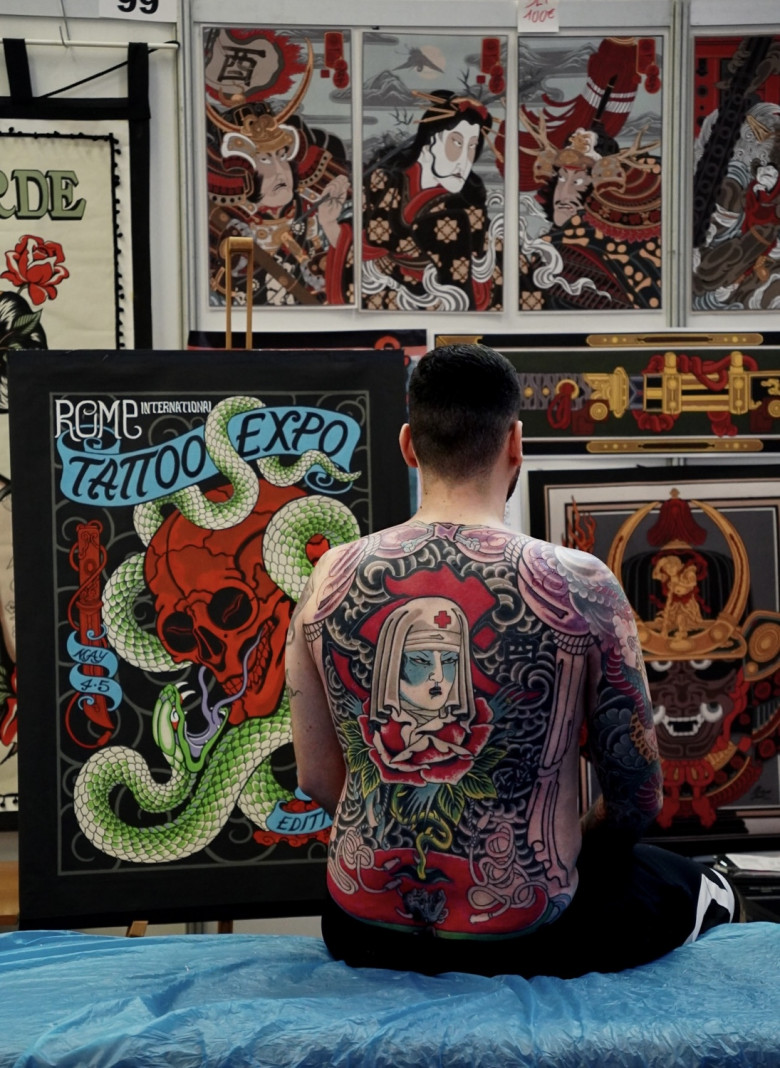
Do you have favorite tattoos, clients, projects, or perhaps some unusual stories in your career?
- For me, the most important aspect of tattooing is staying focused and embracing the opportunity for continuous evolution. Tattooing is a career that allows you to keep learning, studying, and growing, and it's up to you to seize that opportunity. I see it as a dynamic profession where there's always room for improvement and exploration, and that's something I truly value.
We've seen you among convention participants many times. Which ones are the most significant for you, and why?
- Attending conventions has been an invaluable experience for me, with one of the most significant moments being at the Iron Gate convention in Sydney in 2023. The experience provided me with an incredible opportunity to engage with and learn a little watching them at work from established figures in the tattooing community, such as Sensei Horitoshi. While I've never actively pursued entering my work into competitions, not because I'm against it, but because I've never felt my work was good enough, but not to be humble, it’s more about experimenting and perhaps due to a bit of shyness and laziness. Nonetheless, the experience at the Iron Gate convention remains a cherished memory for me.
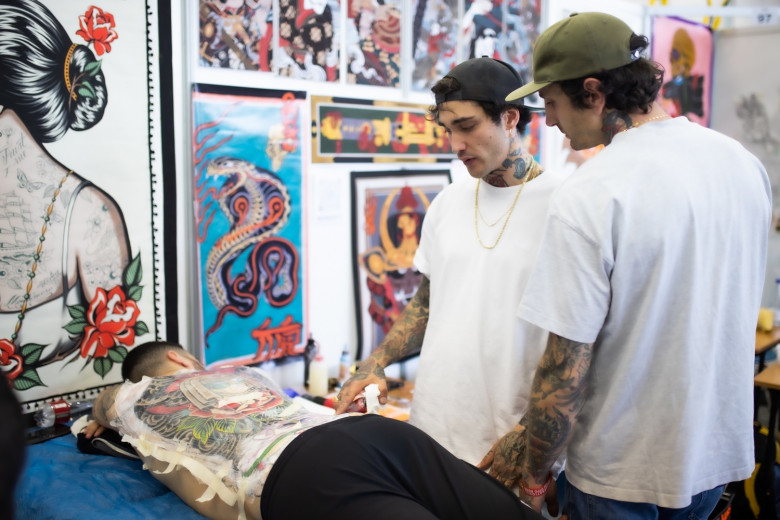
In addition to tattooing, you create simply stunning paintings, design clothing! Have we missed anything? How do you manage to find time for all this, considering your schedule?
- Time is always a challenge, and I often wish there were more hours in the day to work on different projects. Painting, in particular, is something I do purely out of love. It's a way for me to stay inspired and discover new creative avenues. While managing everything can be difficult, I prioritize my projects based on their significance and the impact they have on my growth as an artist.
How do you assess your popularity? And in your opinion, how can it be measured?
- I don't like to focus on popularity or spend time assessing it. It's never been a goal for me. While it feels good when people appreciate my work, I don't actively measure or count popularity. My focus is on creating art that I'm passionate about and that is what I would like to resonates with others, if it happens better, I would get more skin for experimenting.
Many successful tattoo artists strive to share their acquired experience. Tell us if you have any such activities in your life and for whom they are.
- I do indeed engage in sharing my experiences, though not necessarily in structured activities. I'm always open to sharing insights and knowledge with fellow artists or anyone interested in learning more about tattooing. I find fulfillment in sharing what I've learned throughout my journey in tattooing.
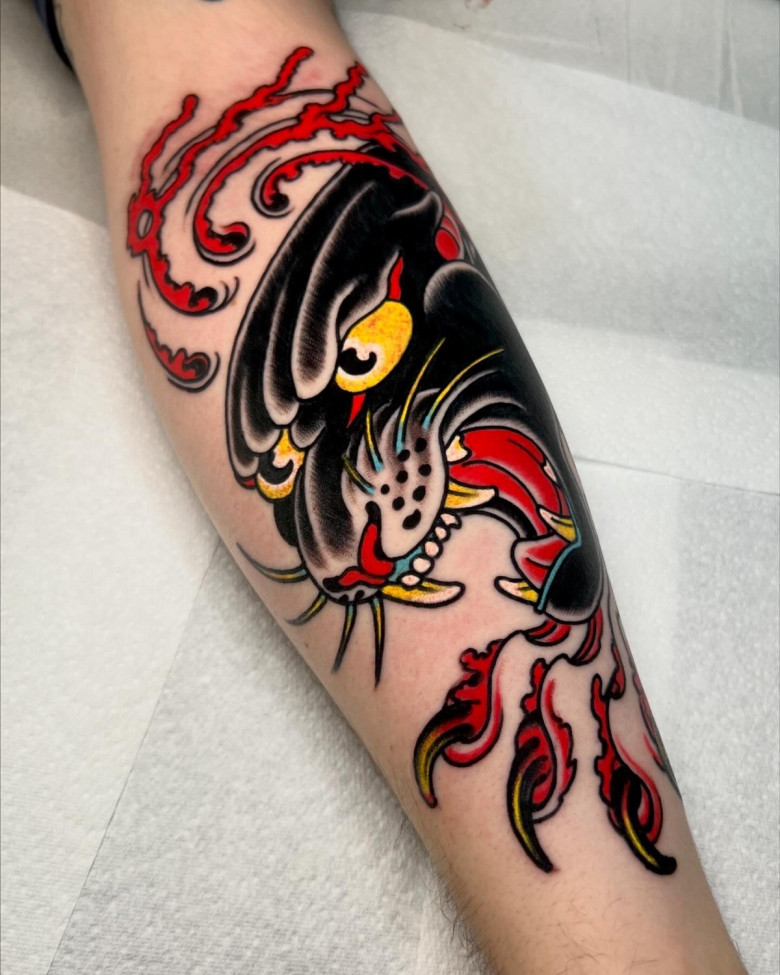
What do you find most appealing about being a tattoo artist?
- The most appealing aspect of being a tattoo artist, for me, is the sense of belonging within the industry. Regardless of background or location, there's an innate connection among those who share a love and dedication to tattooing. Building relationships with like-minded individuals from all over the world is incredibly rewarding and adds depth to my experience as a tattooer.
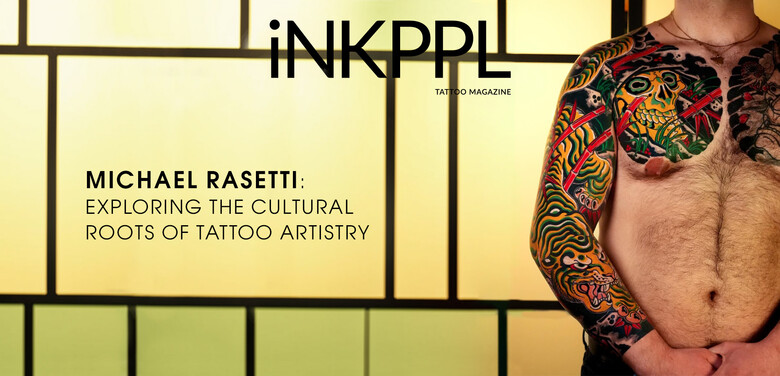





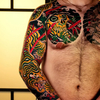
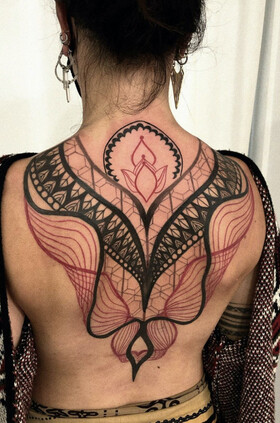
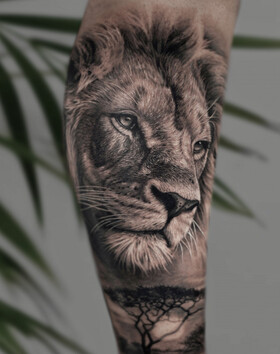

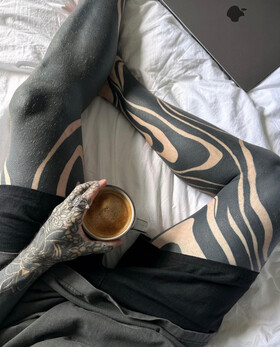
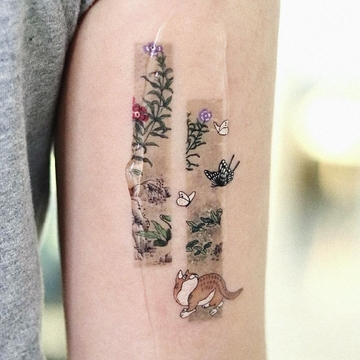
Comments (0)